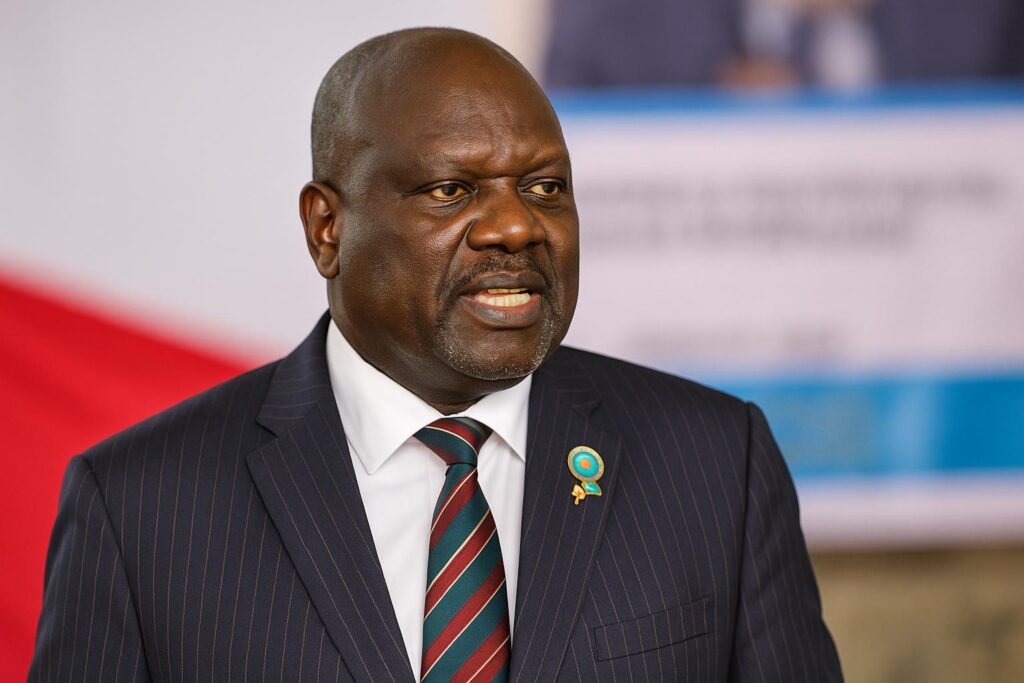High-Stakes Trial Grips Juba
A special tribunal in Juba has again drawn continental attention as it weighs treason and crimes-against-humanity charges against suspended First Vice-President Riek Machar and seven allies.
During Monday’s 17th hearing, presiding Judge James Alala Deng warned the defense: ‘This is a high-profile case, and bringing inexperienced advocates is concerning,’ urging lawyers to avoid questions that imperil witnesses.
Court Urges Measured Cross-Examination
Judge Deng’s admonition followed a query from defense counsel Anis Tombe Augustino, who sought names of a payam and a chief said to have refused funds meant to mobilise the White Army.
The bench ruled that identifying local figures might compromise testimony integrity; panelist Stephen Simon Isaac advised counsel to ‘avoid statements that could implicate their own clients.’
Evidence Chain Under Scrutiny
Lead investigator Maj. Gen. Basilio Thomas Wani faced questions such as counsel Tombe’s, who asked, ‘What steps protected the Vice-President’s privacy?’ regarding Machar’s electronics sent to a South African forensic lab.
Wani insisted the devices were Machar’s personal property, not state assets, and said warrants accompanied the arrests of the other defendants, though Machar himself was never detained.
Tracing Alleged Ritual Funding
Prosecutors allege suspended Petroleum Minister Puot Kang Chuol wired 1,500 dollars to finance a traditional rite before the Nasir assault; Wani cited phone transcripts and a forensic report as documentation.
Defense counsel demanded exact dates, recipients and banking trails, insisting, ‘Show us the exact transaction date and recipient,’ to challenge the credibility of the financial narrative.
What Lies Ahead for the Special Court
The panel postponed proceedings to 5 November for further cross-examination, leaving observers to weigh how legal tactics might influence regional security and reconciliation efforts.
If convicted, Machar and his co-accused could face severe sentences, yet the court’s insistence on fair questioning underscores a commitment to due process in South Sudan’s evolving judiciary.


